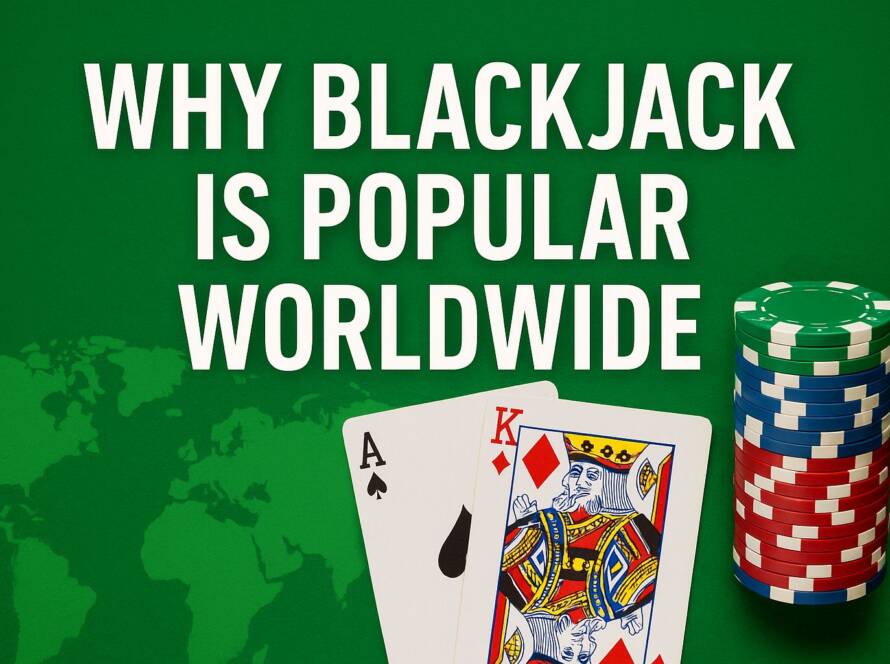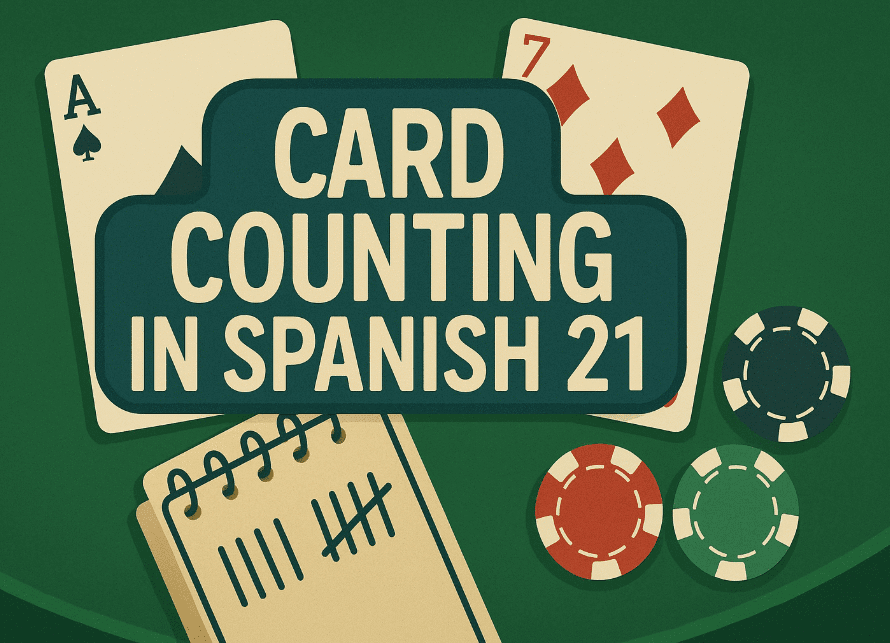Welcome to the fascinating world of blackjack! My name is Emily, and with several years of cards, chips, and strategy under my belt, I’ve seen firsthand how a strong grasp of blackjack terms can absolutely transform your game. Whether your first hand was at your friend’s kitchen table, or you’re aiming for the thrill of a bustling casino floor, knowing the nicknames and lingo makes every moment at the table richer and more exciting. Blackjack may be simple to learn, but its universe is loaded with unique words, phrases, and even inside jokes that can trip you up—or help you win big.
In this blog, I’ll act as your guide through the essential “Blackjack Glossary of Terms.” This resource is perfect for anyone who’s ever sat down to play and wondered, “Wait, what’s a ‘soft seventeen’?” or “Should I really ‘double down’?” I’ll make sure you understand key blackjack terminology, sprinkle in some colorful slang, and leave you ready to join any game with confidence. Let’s get started!
What is a Blackjack Glossary?
A blackjack glossary is your go-to dictionary for all the special terms, slang, and phrases you’ll see around the table. Think of it as your playbook—a cheat sheet to everything from “splitting pairs” to “push.” When you’re playing at a land-based casino or enjoying the convenience of a modern online platform—a solid knowledge of the language is the smartest bet you can make.
The purpose of a blackjack glossary is simple: to help you understand the game, make smarter decisions, and look like you truly belong at the table. If someone asks, “Are you taking insurance?” or says, “Dealer shows an upcard,” you’ll be in the know and quick with your response. That sort of confidence is invaluable!
Key Blackjack Terms Explained (A-Z)
Here it is: the heart of this guide. I’ve gathered 30+ essential terms that every blackjack player should know. Each definition is clear, concise, and packed with those little details that make all the difference. Let’s jump in!
A
- Ace: A card worth 1 or 11 points, depending on how it’s used in a hand. The ace is your most versatile card—it can complete a blackjack or help form a soft hand.
- Action: Any betting or playing activity at the table, or the total amount wagered over a gaming session.
B
- Bankroll: The total amount of money a player sets aside for gambling. A healthy bankroll is crucial for playing responsibly.
- Blackjack: The best hand possible—an ace plus a 10-value card (10, Jack, Queen, or King) totaling 21, dealt on the initial two cards.
- Burn Card: The first card from a shuffled deck, placed face-down before dealing begins, to discourage cheating.
- Bust: When your hand’s value goes over 21—it’s an automatic loss.
C
- Card Counting: An advanced strategy of tracking the ratio of high to low cards remaining in the shoe. Not illegal, but typically frowned upon by casinos.
- Chips: The tokens (instead of cash) used for betting at the blackjack table.
- Cut Card: A colored plastic card used to split the deck after shuffling—signals the last round before the next shuffle.
D
- Dealer: The person representing the house, responsible for dealing cards and managing the game.
- Deck Penetration: The percentage of cards dealt before the deck is reshuffled. Important for card counters!
- Double Down: After receiving your first two cards, you can choose to double your original bet and receive only one more card. For example, with a hand of 11, many players double down hoping for a 10.
- Draw: To take another card, also known as “hit.”
E
- Even Money: If you have a blackjack and the dealer shows an ace, you can choose to be paid 1:1 on your bet right away, protecting yourself from a potential dealer blackjack.
- Edge: The statistical advantage one side (either player or house) has over the other.
F
- Face Cards: Jacks, Queens, and Kings. Each is worth 10 points in blackjack.
- First Base: The seat directly to the dealer’s left, where the first player is dealt cards each round.
H
- Hand: The cards held by either the player or dealer.
- Hard Hand: A hand without any aces, or where all aces count as 1. For example, a 10 and a 7 make a hard 17.
- Hit: To ask for another card from the dealer, trying to improve your hand value.
I
- Insurance: If the dealer shows an ace as an upcard, you may bet up to half your original wager that the dealer has blackjack. Pays 2:1 if you’re correct, but statistically not a great bet.
L
- Late Surrender: The option to forfeit half your bet if you don’t like your chances (only allowed after the dealer checks for blackjack).
- Limit: The minimum and maximum amount allowed for betting at the table.
M
- Multi-Deck: A game that uses more than one standard deck of cards—most common blackjack games use six or eight decks at once.
P
- Pat Hand: A strong hand (usually 17 or higher) that you will almost always stand on.
- Push: A tie between the dealer and player—your bet is returned, and neither side wins.
R
- Resplit: If you split a pair and then receive another card of the same value, you may be allowed to split again, depending on house rules.
S
- Second Base: The seat in the middle of the table, right between first and third.
- Shoe: A device holding multiple decks that deals cards one at a time. Essential for multi-deck games.
- Soft Hand: Any hand containing an ace valued as 11. For example, ace + 6 = soft 17.
- Split: If you’re dealt two of the same card, you can split them into two separate hands, placing an additional bet.
- Stand: To keep your current hand and refuse any more cards.
- Surrender: The act of giving up your hand for half your bet back, if you don’t think you can beat the dealer.
T
- Third Base: The seat farthest to the dealer’s right, where the last player to act sits before the dealer plays their hand.
- Toke: Slang for a tip given to the dealer.
U
- Upcard: The dealer’s visible card, dealt face-up while the other card remains hidden.
V
- Vegas Strip Rules: A popular set of blackjack rules used by many casinos, including specifics on when the dealer stands or hits, splitting, and doubling down.
Z
- Zero Tolerance: A term used for casinos with strict rules against card counting or disruptive play.
Of course, blackjack lingo is as colorful as the people who play it. These 30+ definitions will have you speaking the language—no matter where you play!
Common Slang and Jargon
Every blackjack table has its own mini language and culture. Here are a few favorites you might overhear:
- “Color Up”: Exchanging small denomination chips for higher ones—often done before leaving the table.
- “Stiff”: A weak hand (usually 12-16) that’s hard to improve without busting.
- “Anchor”: Another word for the player in third base position—the last to act before the dealer.
- “Hot Deck”: A deck (or shoe) filled with high cards—great for the player, but not so much for the house.
- “Cold Deck”: A deck packed with low cards—much less exciting for most players.
- “Snapper”: Slang for a natural blackjack.
If you want to feel truly at home at the table, it pays to know the lingo as well as the rules.
Tips for Learning Blackjack Terms
It can feel overwhelming at first—so many words, so many subtleties! But with a few simple strategies, you’ll make progress faster than you think:
- Use flashcards or apps: Just like high school vocab tests, repetition works wonders.
- Play for fun: The best way to learn is at the table—either low-stakes with friends or in an online setting.
- Watch and listen: Watching blackjack streams or videos (especially with commentary) will get you comfortable hearing and using the terms in real time.
- Ask questions: Never hesitate to ask the dealer or more experienced players if a word or action is unfamiliar. Most love to share their knowledge!
If you’re exploring the world of online blackjack—it’s even more important to be fluent in the language. Reading game rules and terms carefully helps prevent costly mistakes and boosts your confidence at the virtual felt.
Conclusion
As someone who’s spent countless hours at the blackjack table, I can say with total confidence: mastering blackjack vocabulary deepens your appreciation of the game and seriously sharpens your edge. Whether you’re sitting down for the very first time, or refining your strategy in search of that perfect hand, this glossary is your new best friend. Take the time to soak up these terms, and you’ll walk onto any casino floor (in person or online) ready for action.
I hope you found these notes and tips useful—and maybe even a little inspiring. Blackjack is as much about community and conversation as it is about the cards, and understanding the words is a key part of the fun.
Best of luck at the tables—whether you’re chasing that natural blackjack, splitting aces, or taking a shot at the latest crypto platforms. If you ever have questions or want to talk strategy, you know where to find me!
– Emily
Frequently Asked Questions
Why is it important to know blackjack terminology?
Understanding blackjack terminology lets you follow the action confidently, make smarter decisions at the table, and communicate with other players and the dealer. It also means less confusion and better chances of success, especially when it comes to more advanced strategies. Whether you’re at a real-life casino or playing online blackjack with crypto, knowing the language is the first step toward mastering the game.
What’s the difference between a ‘soft hand’ and a ‘hard hand’?
A “soft hand” includes an ace that’s being counted as 11. This gives you added flexibility since you can always switch the ace to a value of 1 to avoid busting. A “hard hand” has no ace (or all aces are counted as 1), leaving you with fewer options to improve without going over 21.
What does ‘double down’ mean in blackjack?
To “double down” is to double your original bet after receiving your first two cards, but you get only one more card—no more hits after that. It’s a way of pressing your luck when you think you have a strong chance of beating the dealer—like holding an 11 when the dealer shows a weak upcard.


